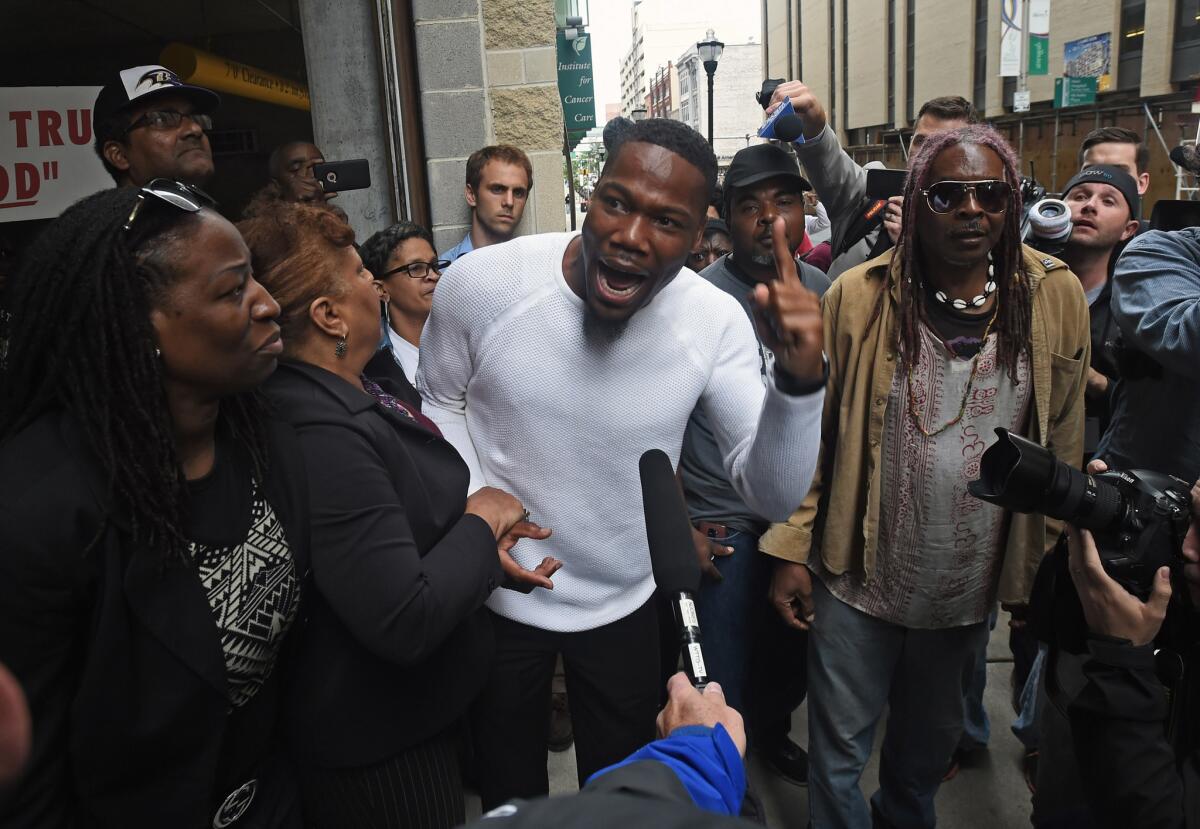Editorial: Don’t mistake Edward Nero’s acquittal in the Freddie Gray case for vindication of the Baltimore police

- Share via
The acquittal Monday of a Baltimore police officer on charges relating to the death of Freddie Gray should not be seen as a vindication of the police department, its policies, its training or its oversight of officers. Criminal trials are pending for five other officers, each of whom must defend his or her actions on April 12, 2015, the day Gray suffered a fatal spinal injury after he was arrested, shackled and loaded into a police van without a safety restraint. But verdicts in those cases likewise will serve neither to uphold current police practices nor brand the entire department as criminal.
There have been, and there may continue to be, police officers throughout the U.S. who have no business being in uniform because their temperament or attitudes make them wrong for what is among the nation’s toughest and most dangerous – and increasingly most thankless – jobs. And some of them, insufficiently vetted, improperly trained and inadequately supervised, may well engage in conduct that properly meets the definition of a crime.
But police reform does not and should not consist solely of a hunt for bad officers and cannot be measured by how many are criminally convicted.
There have been police departments in which the abuse of authority is not merely tolerated but encouraged, and in which such abuses become standard conduct. In Baltimore and elsewhere, stories are told of “rough rides” in police vans that officers intentionally mete out to suspects as a brazen and certainly unlawful display of power. Surely there is criminal culpability to be found if that’s what fatally injured Freddie Gray last year.
But what if Gray’s treatment was the result of inadequate police leadership, unprepared officers and a series of basic failures in procedure, all exacerbated by lax oversight and discipline? There might be no crime – and yet the city might still have been providing policing that is so inadequate as to be what can only be deemed criminally deficient.
Gray’s death has led to an examination of police practices in Baltimore and other cities. Two trials – the one in which Officer Edward Nero was acquitted Monday and one earlier this year that resulted in a mistrial – have produced testimony about the Baltimore Police Department’s inconsistent application of standards and decidedly non-rigorous training. The mayor and police commissioner have taken some first steps to improve oversight. The U.S. Department of Justice is reviewing the department’s civil rights record. Acquittals do not obviate the need for such scrutiny and reform. Convictions cannot substitute for it.
Follow the Opinion section on Twitter @latimesopinion and Facebook
A cure for the common opinion
Get thought-provoking perspectives with our weekly newsletter.
You may occasionally receive promotional content from the Los Angeles Times.



